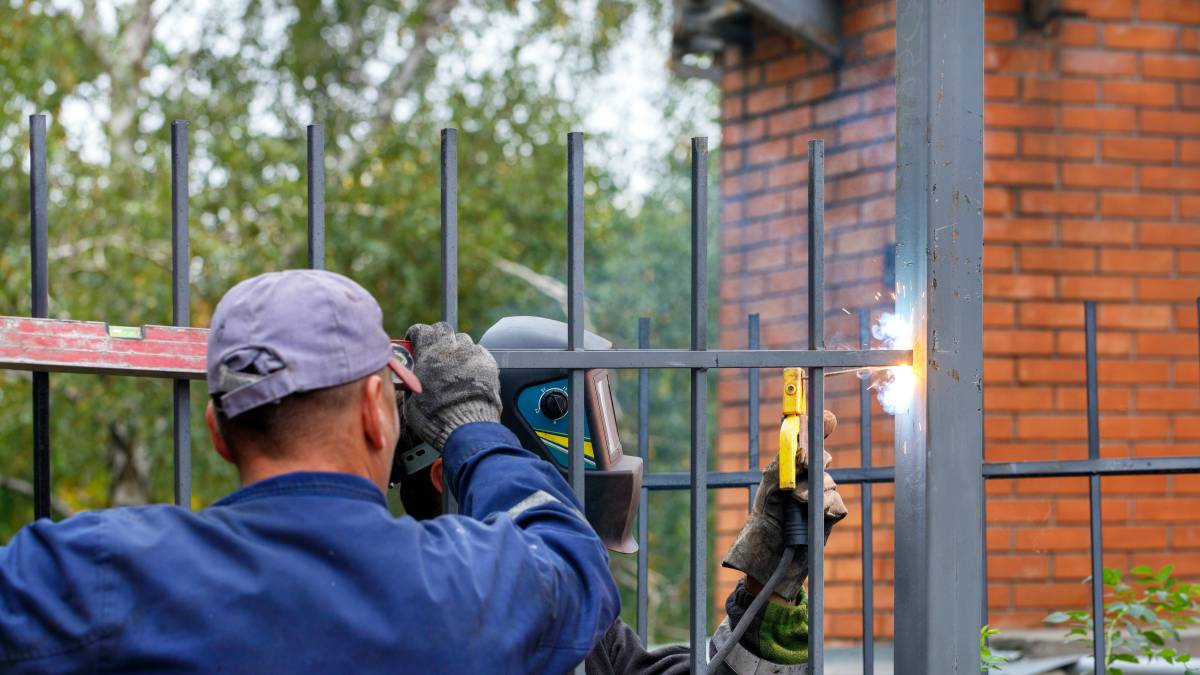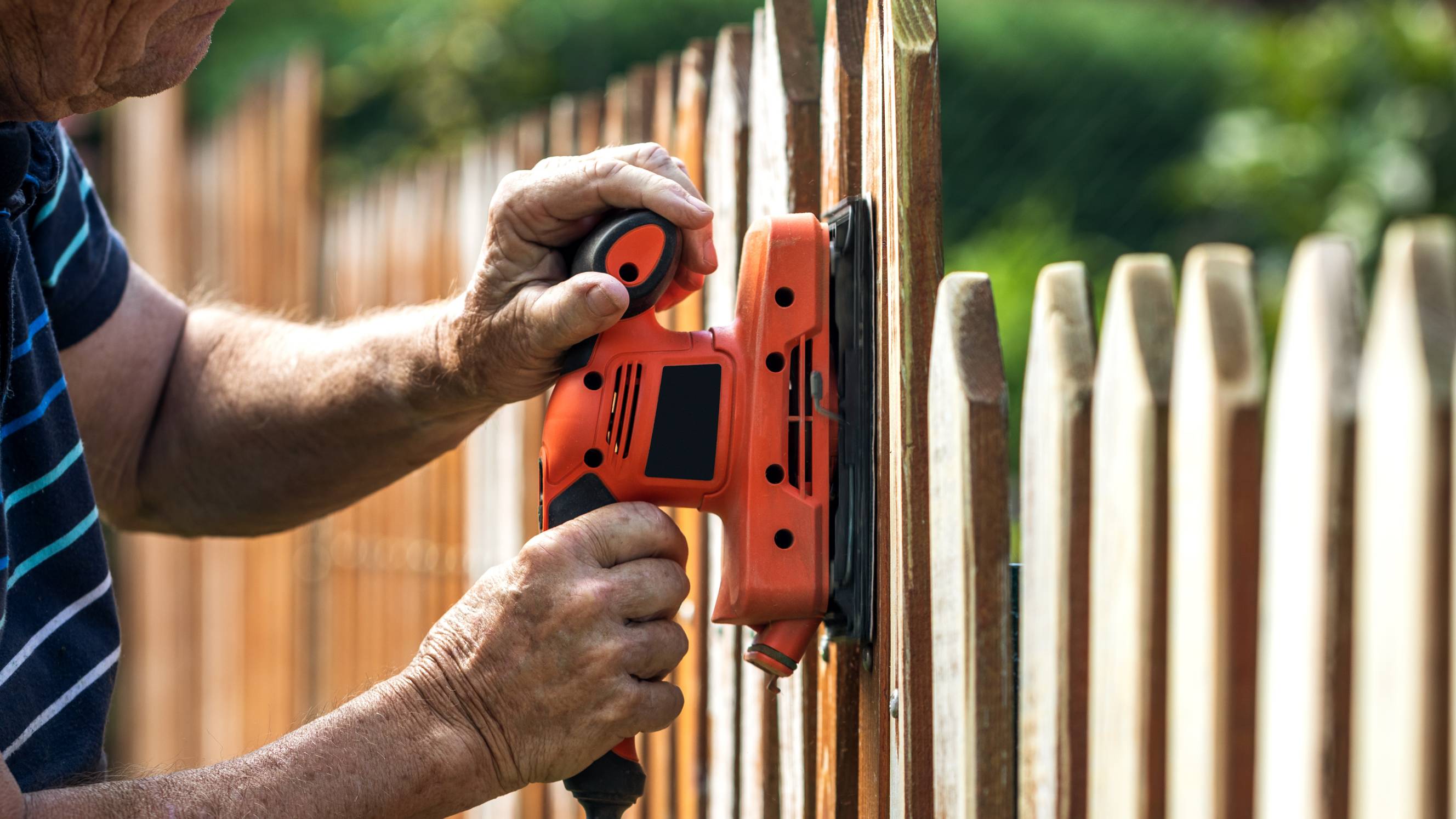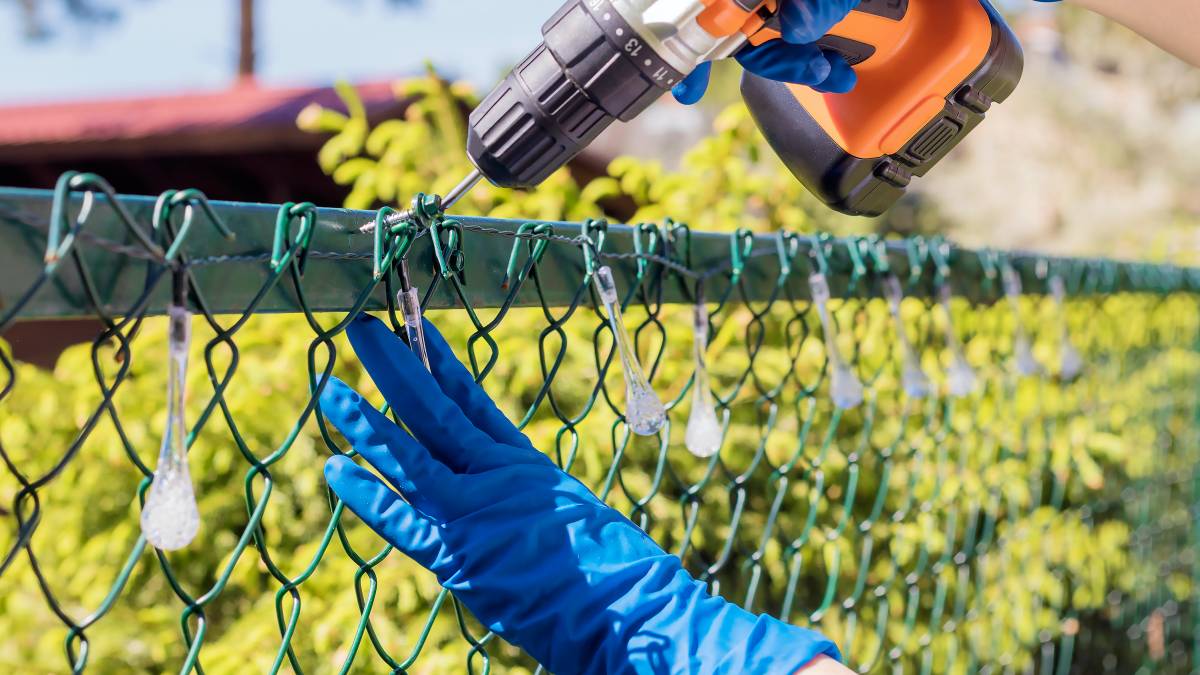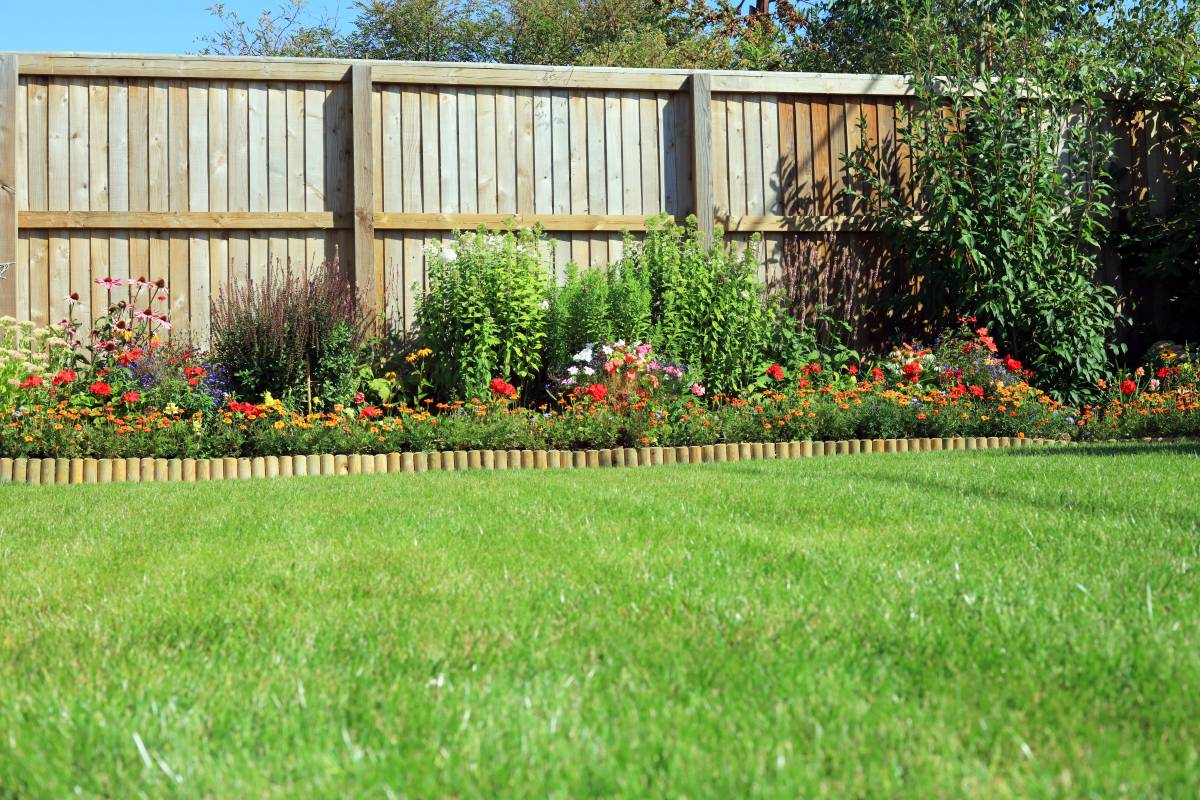- Home/
- Costs/
- Picket Fencing/
- Picket Fence Cost Guide
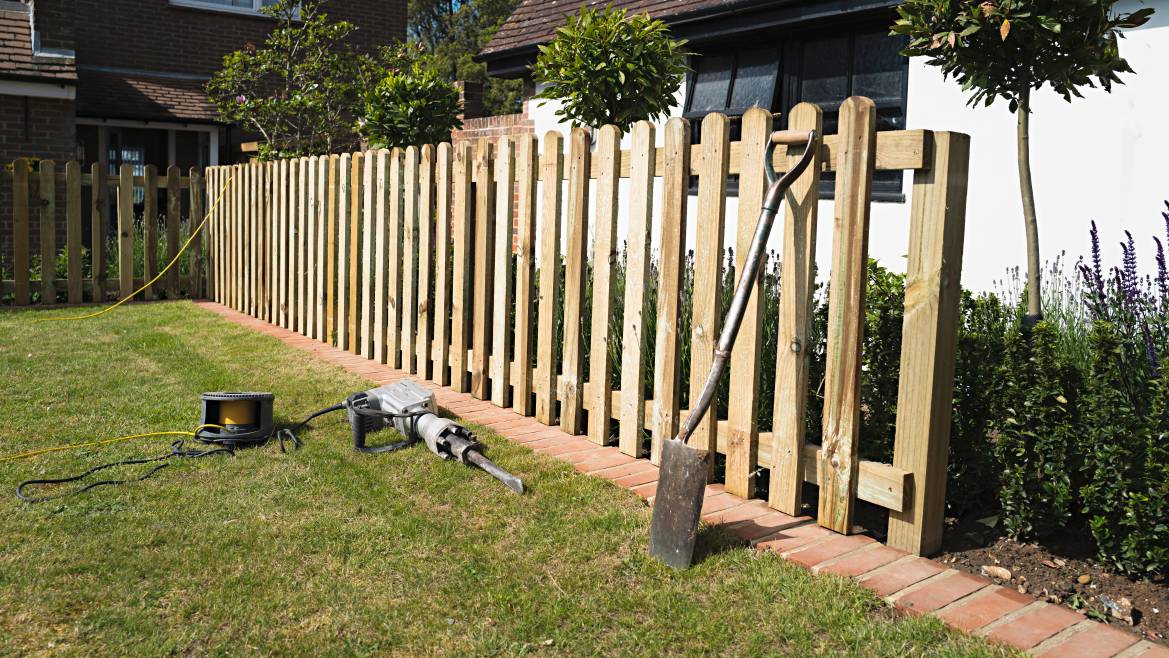
Picket fence cost guide: Average prices for installation
Get a free quote nowPost to find a price. It's free and only takes a minute.
Average picket fence costs
$500 - $4,500
low
$500
median
$2,500
high
$4,500
Last Updated on
Key Facts
- The average picket fence cost ranges from $500 to $4,500, depending on the materials used, fence length, and labour.
- Popular picket materials include treated pine, hardwood, and vinyl, each varying in durability and maintenance needs.
- Installation involves digging post holes, setting posts in concrete, aligning panels, and securing them with nails or screws.
No fence spells class and charm more than a picket fence. In fact, a white picket fence is a quintessential symbol of a lovely suburban home. But how much should you pay for its installation?
The typical picket fence cost is $2,500. But other factors, such as materials, project complexity, and extra services, can affect the price. This guide will discuss everything you need to know about the cost of picket fencing and help you get accurate quotes from contractors.
Price list for picket fence installation
|
State/area |
Cost of picket fencing |
|---|---|
$500–$2,500 |
|
$600–$4,500 |
|
$500–$5,000 |
|
$500–$1,000 |
|
$400–$3,000 |
|
Tasmania |
$600–$1,300 |
Australian Capital Territory (ACT) |
$600–$2,000 |
Northern Territory (NT) |
$500–$3,000 |
Usually, contractors quote according to the area. On average, the cost of picket fencing per metre is $75. But as the table above shows, the prices can swing wildly from less than a thousand to over $3,000 per project. It’s because the final cost considers multiple variables.
What affects picket fence installation costs?
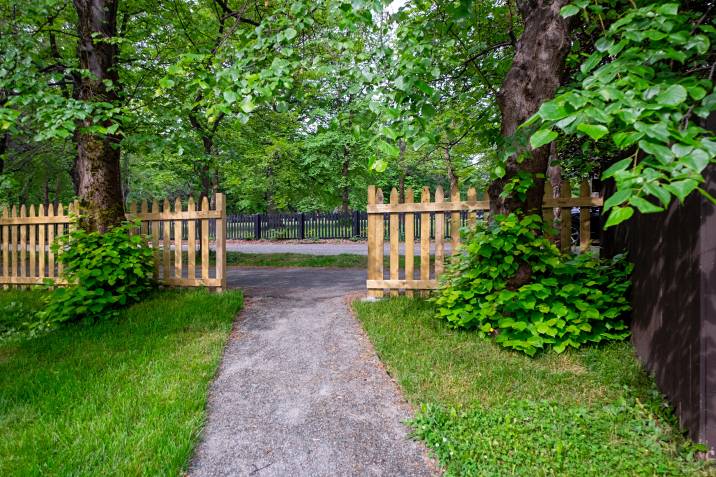 A charming wooden picket gate opens to a quiet neighborhood street. (Source: iStock)
A charming wooden picket gate opens to a quiet neighborhood street. (Source: iStock)
At least three factors have a huge impact on picket installation prices. These are materials, project complexity, and additional services.
Material
The material is the biggest factor influencing the cost of picket fence installation in Australia.
| Material | Description |
|---|---|
Timber |
Timber is a favourite among picket-fence fans because it easily goes well with home aesthetics. But the biggest challenge is maintenance. Staining, for example, can easily shore up the overall price of a wooden fence to at least 10% compared to an aluminium fence. Overall, installing wood picket fences may cost up to $120 per metre. |
Aluminium |
Aluminium is the second preferred picket fence material because it is versatile, durable, and non-corrosive. In other words, it’s easy to maintain. However, the typical aluminium picket fence cost is higher than wood at a minimum of $95 per metre. |
Steel |
A steel picket fence is popular for contemporary or industrial homes. Steel is also a durable material that can withstand extreme weather conditions. The cost of a steel picket fence depends on the type you choose. Galvanised steel is the most affordable option, with a price tag of around $100 per metre. |
PVC |
PVC is a synthetic plastic known for being weather-resistant and low maintenance. It’s also lightweight, making it easy to install. The cost of a PVC picket fence varies according to type. The most common is uPVC, with a price tag of around $55 per metre. |
Vinyl |
Vinyl has the same benefits as PVC, with the bonus of mimicking the look of timber. The price usually starts at $40 per metre. |
Project complexity
How much is a picket fence? It also depends on project complexity, including:
- Area size. The bigger the land that needs fencing, the pricier it gets.
- Regulations. Local zoning and land laws can make a simple fence installation project more time-consuming, stressful, and, therefore, expensive. Contractors might have to file the proper paperwork, which is an additional cost, before commencing the job.
- Purpose. Picket fences are usually decorative. But they can also have other functions, such as containing animals or providing privacy. The more complex the desired function, the pricier the job might be. For example, garden fencing could cost more than a privacy fence because the former is often shorter and has more intricate designs.
- Terrain difficulty. Is the area sloped or hilly? If so, the contractor will need to level the land before installing the fence, which will add to the picket fence cost.
- Fence sections. If you have a lot of obstacles in your yard, such as trees and bushes, you might need more sections built. More sections mean more posts, panels, and work—and a higher bill.
Additional services
The cost of a picket fence will also vary according to the additional services you need. Some contractors are ready to go the extra mile for a reasonable price. They might offer:
- Replacement and removal of old picket fences
- Fence design
- Landscaping
- Fence staining and sealing
- Emergency picket fence repair
- Land levelling or contouring
Hire a picket fence installer on Airtasker
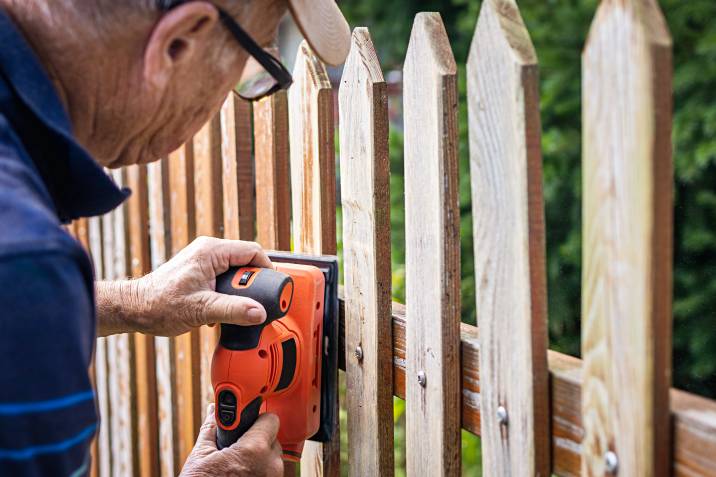 A person sands a picket fence panel to prep it for sealing or painting. (Source: iStock)
A person sands a picket fence panel to prep it for sealing or painting. (Source: iStock)
Overall, many things can affect the cost of picket fence installation. However, you’ll have better control over your spending through Airtasker. Knowing the cost of picket fence installation is the first step. The next one is to find the best contractor for the job—one who can give you excellent service for the budget you have in mind.
Connect with a local Tasker by posting a task. To find the right person, include these details in the request form:
- Your location and budget
- Your preferred date and time
- Size of the land you want to fence
- Type of fence you like
- Other services you’re looking for
You’ll shortly get offers and be able to choose the best professional for your needs.
FAQs on picket fence costs
Most standard picket fences take 1 to 3 days to install, depending on property size, terrain, and whether the fence is custom-built or prefabricated.
It depends on your local council. Generally, fences under 1.2m in the front yard or 2m in the backyard don’t require approval, but it’s best to check local regulations.
Yes, picket fences can be adjusted for slopes using stepped or racked designs, but installation may take longer and cost more.
Treated pine and hardwoods like jarrah or merbau are popular choices due to their durability in Australian weather conditions.
Find picket fencing contractors, fast
Post a task
Related price guides
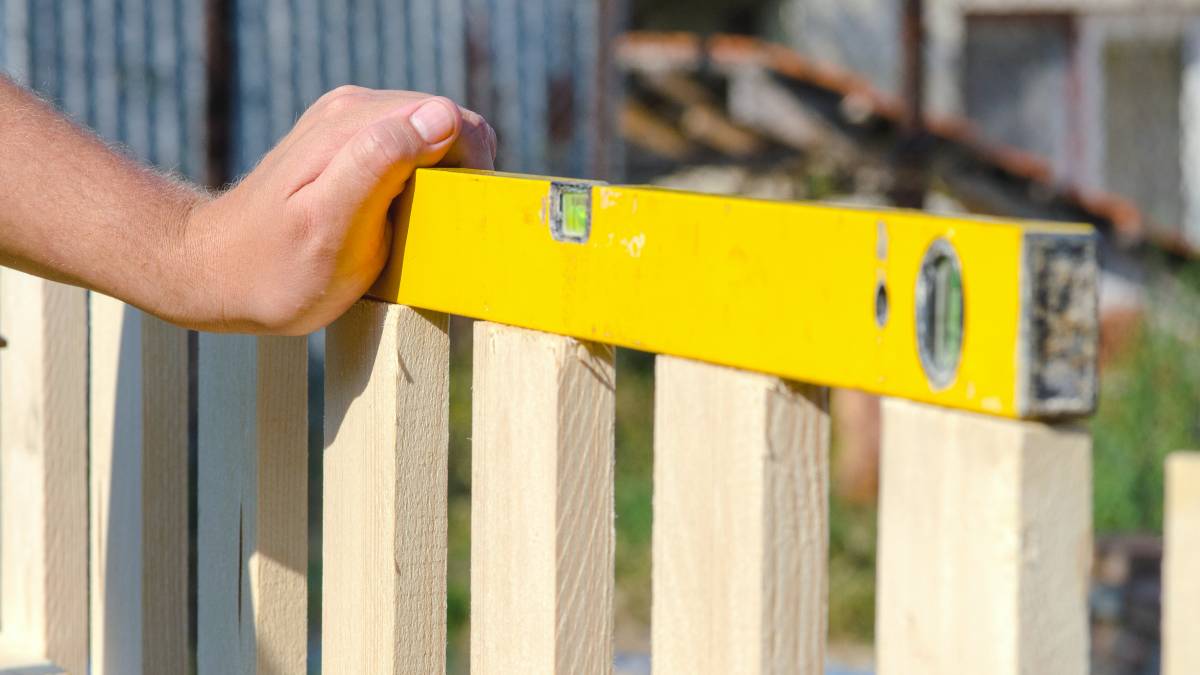
How much does wood fencing cost?
Read more
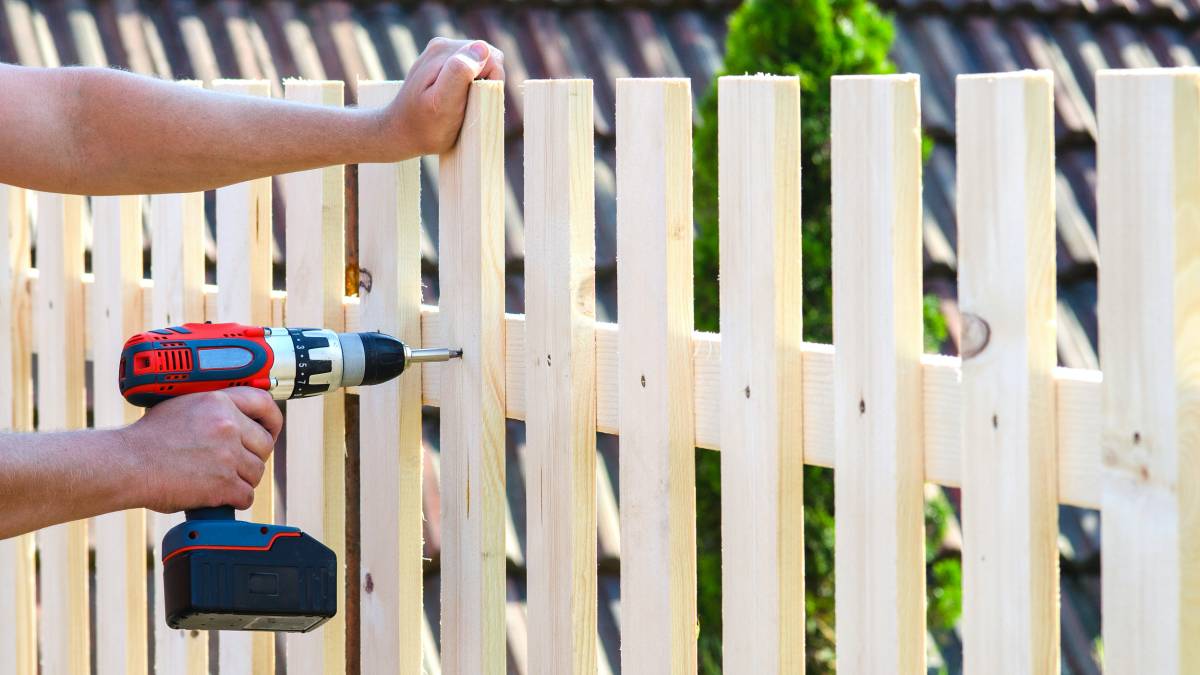
How much does fence repair cost?
Read more
Related articles
